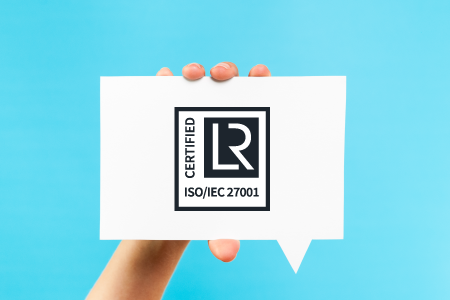What Is an ISO Certification?
The ISO, or International Organization for Standardization, is an independent organization in which 167 national standards bodies are represented. Each participating country has one member representative, and through this membership, experts are brought together from across the world to share knowledge and develop international standards that support innovation and provide solutions to global challenges.
ISO Certifications are crucial to developing the most effective and innovative solutions across the globe. These standards are effective in determining quality of management, environmental impact, health and safety features, energy management, and IT security.
Developed in 1946 by delegates from 25 countries, today there are 24,510 international standards that cover almost every aspect of technology and manufacturing.
What This Means for TIE Kinetix
Since January 2022, TIE Kinetix has been ISO 27017, and ISO 27018 certified, in addition to our already existing ISO 27001 certification. These certifications raise the bar for information security, guaranteeing enhanced cloud security and privacy in the cloud. The accomplishment of earning these certifications marks a significant achievement for TIE Kinetix at a time when supply chain attacks are on the rise and enhanced security is a top IT initiative.
What This Means for Our Customers
According to the 2022 X-Force Threat Intelligence Index, a report by IBM, manufacturing was the most-cyber-attacked industry in North America in 2021, accounting for 28% of attacks that X-Force discovered, and likely caused by the supply-chain strain on the industry. To prevent these and other undesirable circumstances, TIE Kinetix has maintained ISO 27001, ISO 27017, and ISO 27018 certifications. We have even eliminated the use of email in our services as much as possible due to the potential risks involved for our customers.
As part of our commitment to security, we will continue to undergo yearly ISO audits to maintain up-to-date certifications as well as adjust business practices in the best interest of our customers. This provides additional information security assurance to all customers and helps us to better ensure that our business-to-government (B2G) and business-to-business (B2B) customers always remain fully compliant with any (new) legislation that may require them and/or their service providers to adhere to certain information security standards.
Importance of Security
As you know, TIE Kinetix is fully dedicated to making sure our customers are achieving their document exchange and supply chain goals. This means we are inherently focused on efficiency and accuracy, but it’s important to keep in mind that security goes hand-in-hand with this
Any data breach can be detrimental to your company, but at TIE Kinetix, our goal is to eliminate that risk when it comes to electronic document exchange. That’s why we hold ourselves accountable and ensure that we meet all security compliance requirements (in the way we conduct business, and within the solutions we offer to our customers).
ISO Certifications and ESG Targets
Over the past year, TIE Kinetix has made a concentrated effort to audit the way we do business as it pertains to environmental, social, and governance factors. In maintaining our ISO certifications, we are contributing to these goals by continuously evaluating and improving our internal processes in order to minimize risk for our customers. You can find more about our ESG targets here.
We invest in security, especially when it comes to the development of our solutions. Becoming ISO certified was just one important step in ensuring that our business infrastructure is sustainable—we make a conscious effort to improve in all other areas as well.
ISO certifications are surely not the last step in our security journey. Recently, we’ve passed the SOC 2 audit and subsequently received the SOC 3 report, which demonstrates our proactive measures to ensure minimal security risks to our customers. As new (e-invoicing and e-reporting) legislation increasingly puts pressure on companies (and their service providers) all over the world, and while companies simultaneously focus on their own ESG initiatives, we will continue to strengthen and improve our technology and processes because today’s business environment demands it.




